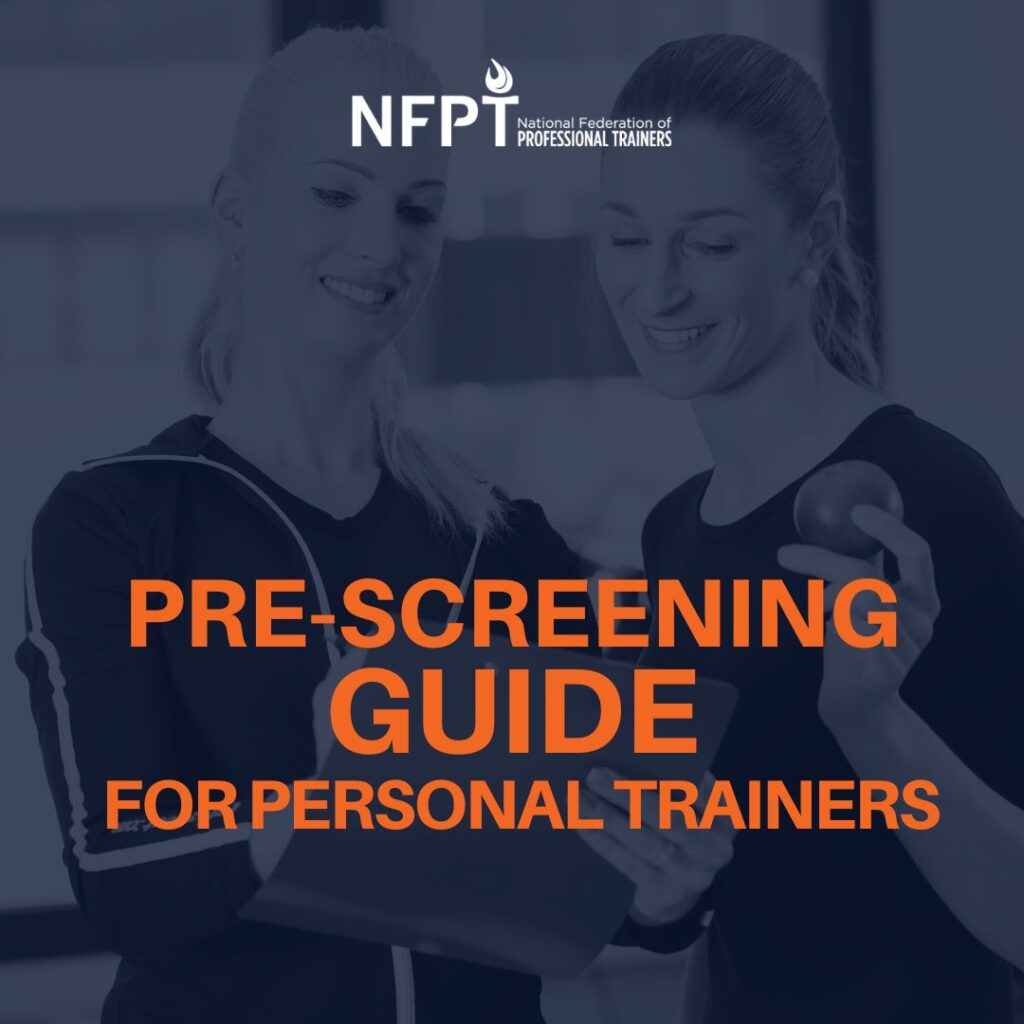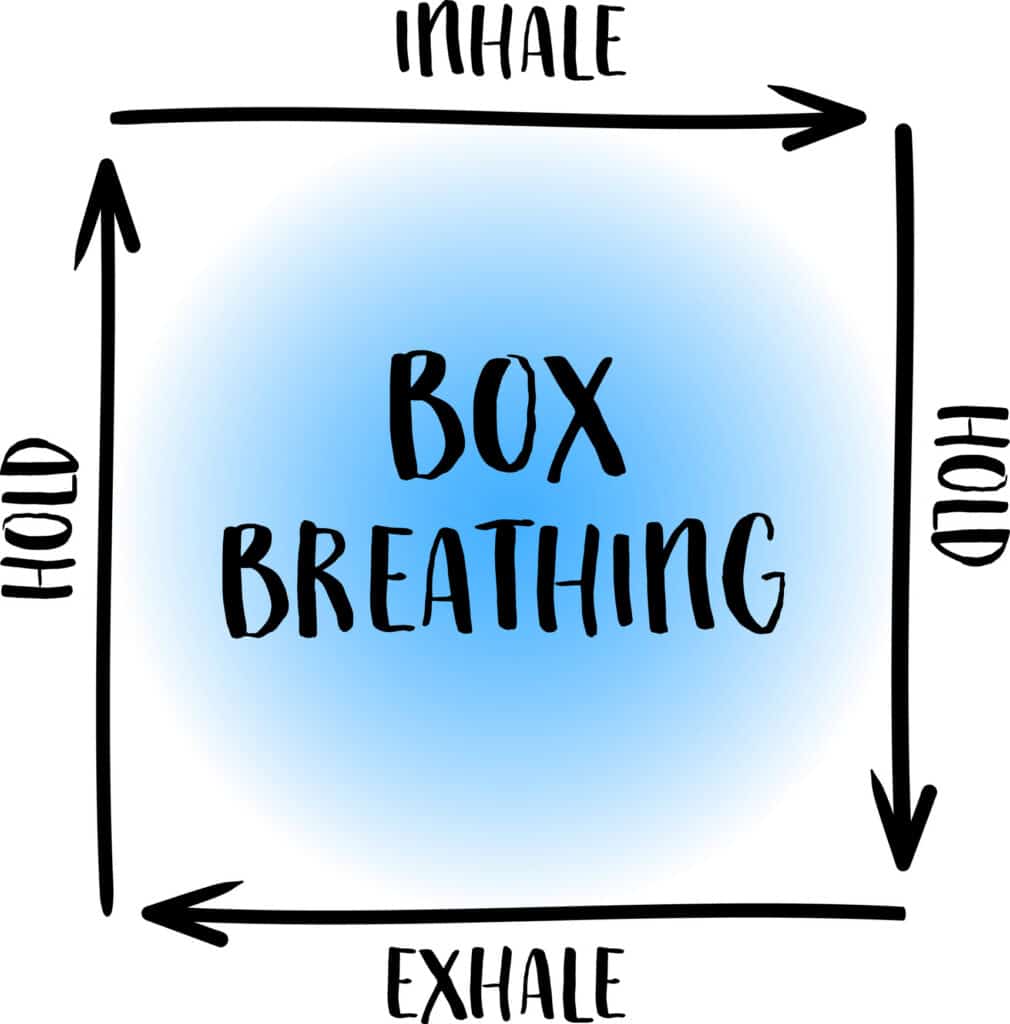When you become a personal trainer, your primary objective is to ensure your clients achieve their fitness goals safely and effectively. An essential step in this process is pre-screening, which helps you gather crucial information about a client’s health and fitness background before starting any exercise program. In this article, we will discuss why pre-screening is vital, examine some industry-standard pre-screening forms, explore situations where a client should obtain a referral before commencing training, and identify additional assessments that can complement the information gathered from pre-screening forms.
Why is pre-screening important?
Pre-screening serves several critical purposes, including:
Identifying potential health risks: Pre-screening helps you detect any underlying health conditions or risk factors that may impact a client’s ability to exercise safely. This information enables you to tailor exercise programs to accommodate their specific needs and limitations.
Establishing a baseline: Pre-screening allows you to record a client’s initial health and fitness status. This baseline can be valuable for tracking progress, setting realistic goals, and adjusting the training program as needed.
Ensuring legal protection: Proper pre-screening helps protect you and your business from potential liability issues. If a client experiences an injury or health complication during training, well-documented pre-screening records can demonstrate that you took the necessary precautions to assess their readiness for exercise.
Examples of industry-standard pre-screening forms
There are several widely-used pre-screening forms that personal trainers can utilize to assess their clients’ health status:
Physical Activity Readiness Questionnaire (PAR-Q): The PAR-Q is a simple, self-administered questionnaire that asks clients about their medical history and any potential risk factors for exercise. It is a popular and accessible tool for identifying individuals who may require further medical evaluation before engaging in physical activity.
American College of Sports Medicine (ACSM) Preparticipation Screening Questionnaire: This comprehensive form, developed by ACSM, evaluates a client’s medical history, current health status, and exercise history. It can help you identify clients at low, moderate, or high risk for exercise-related complications.
Health History Questionnaire (HHQ): The HHQ is another widely-used form that delves into a client’s personal and family medical history, lifestyle habits, and exercise experience. It provides a thorough overview of potential health risks and contraindications for exercise.
When a client should get a referral before commencing training
A client may need to obtain a referral from their healthcare provider in the following scenarios:
The pre-screening form reveals a history of heart disease, diabetes, high blood pressure, or other significant medical conditions.
The client is pregnant or has recently given birth.
The client is over 65 years of age and has no prior exercise experience.
The client experiences pain, discomfort, or any concerning symptoms during the pre-screening assessment or initial training sessions.
[sc name=”functional” ][/sc]
Additional assessments beyond pre-screening forms
While pre-screening forms provide valuable insights into a client’s health status, it’s important to incorporate additional assessments to obtain a comprehensive understanding of their fitness level. Some key assessments include:
Heart rate: Measure your client’s resting heart rate to gauge their cardiovascular fitness and monitor progress over time.
Blood pressure: Assess your client’s blood pressure to identify potential hypertension or other health concerns.
Height and weight: Record your client’s height and weight to calculate their Body Mass Index (BMI), which can help determine a healthy weight range.
Waist circumference: Measure waist circumference as an indicator of visceral fat, which can be a risk factor for various health issues.
Body composition: If possible, use a body composition assessment method, such as skinfold measurements or bioelectrical impedance analysis, to estimate your client’s body fat percentage. This information can help you tailor their exercise program and provide a more accurate measure of progress than BMI alone.
Functional movement screening (FMS): Conduct a functional movement assessment and/or an overhead squat assessment to identify any muscle imbalances or movement restrictions that could impact your client’s performance and increase their risk of injury. By addressing these issues early on, you can create a safer and more effective training program.
Fitness tests: Perform baseline fitness tests, such as the push-up test, plank test, or a timed walk or run, to assess your client’s current fitness level and track improvements over time.
Summary
In conclusion, pre-screening is a vital aspect of personal training that helps you identify potential health risks, establish a baseline for tracking progress, and protect yourself legally. By utilizing industry-standard pre-screening forms, obtaining referrals when necessary, and conducting comprehensive assessments, you can create safe, effective, and personalized exercise programs for your clients. As a personal trainer, taking the time to conduct thorough pre-screening and assessment processes is not only a professional responsibility but a key component in ensuring your clients’ success on their fitness journey.
If you liked this blog – check out our Fitness Education Online website for more Personal Trainer Continuing Education



